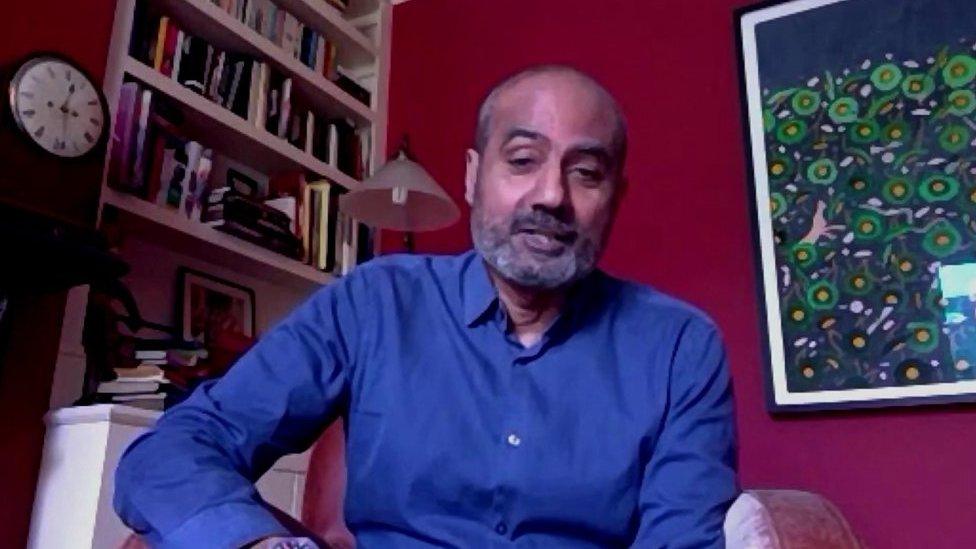George Alagiah takes break from TV after further spread of cancer
- Published

BBC presenter George Alagiah is to take a break from TV to have treatment after "a further spread of cancer" was discovered, his agent has said.
The 65-year-old journalist, one of the faces of the BBC News at Six, was first diagnosed with bowel cancer in 2014.
Last June, he said it had spread to his lungs, liver and lymph nodes.
Now, he has said his doctors want to hit the new tumour "hard and fast". He will have chemotherapy and radiotherapy over the coming months.
In a statement on Monday, his agent said: "George Alagiah, presenter of BBC News at Six, Britain's most watched news programme, is to take a break from studio duties to deal with a further spread of cancer.
March 2020: George Alagiah on living with coronavirus and cancer
"He was first diagnosed with stage 4 bowel cancer in April 2014. In a letter to colleagues in the newsroom Mr Alagiah said his medical team had decided to hit the new tumour 'hard and fast'.
"He is due to undergo a combination of chemotherapy and radiotherapy over the next few months.
"He added that working on the programme 'has kept me sane over the last few years' and 'I'm determined to come back'."
A BBC spokesperson said: "We are all wishing George well and look forward to seeing him back in the newsroom."

What are bowel cancer symptoms?
A persistent change in bowel habit - going more often, with looser stools and sometimes tummy pain
Blood in the stools without other symptoms, such as piles
Abdominal pain, discomfort or bloating always brought on by eating - sometimes resulting in a reduction in the amount of food eaten and weight loss
Most people with these symptoms do not have bowel cancer, but the NHS advice is to see your GP if you have one or more of the symptoms and they have persisted for more than four weeks.
And if you, or someone you know, have been affected by cancer, information and support is available on the BBC's Action Line page.
Source: NHS UK, external
Related topics
- Published11 June 2020

- Published14 May 2020

- Published31 March 2020

- Published13 June 2019

- Published24 January 2019
